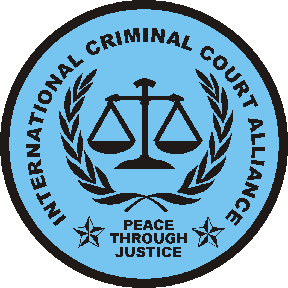Bangladesh to seek ICC role to try alleged Pakistan war criminals
 Dhaka - Bangladesh may request the International Criminal Court to put on trial Pakistani forces for alleged war crimes, a top official said Tuesday.
Dhaka - Bangladesh may request the International Criminal Court to put on trial Pakistani forces for alleged war crimes, a top official said Tuesday.
"We will take the matter to the International Criminal Court and seek the trial of the members of the Pakistani occupation forces who committed crimes against humanity during our liberation war," State Minister for Liberation War Affairs, AB Tajul Islam, told German Press Agency dpa.
The alleged perpetrators of the atrocities among the Pakistani forces were not in Bangladesh now, so Dhaka needed international assistance to bring them to justice, he added.
"And we will request the world body to bring them to justice as many of them are guilty of war crimes," said Tajul, a war veteran. He said the government was going to appoint a body to reinvestigate the crimes.
The Hague-based International Criminal Court, which came into being in 2002, is a permanent tribunal to prosecute individuals for genocide, crimes against humanity, war crimes, and the crime of aggression.
An inter-ministry meeting comprising representatives from Bangladesh's ministry of law, home affairs ministry, foreign affairs ministry and liberation war affairs ministry, is scheduled Wednesday to examine the best possible way to bring war criminals to justice.
More than 80,000 officers and soldiers of the Pakistani army and the paramilitary and police forces and 13,000 civilians were repatriated from Bangladesh after their surrender to the allied forces led by the Indian army on December 16, 1971.
In a goodwill gesture, India - which had given all-out support to Bangladesh during the war - unilaterally decided not to try the prisoners of war for war crimes and released them under the July 3, 1972 Simla Agreement with Pakistan.
Bangladesh was not a party to the agreement.
The state minister said that the government would do everything possible to bring the war criminals, whoever they may be, to justice in a transparent manner so that no one could question the fairness of the trials.
Bangladesh has formally sought assistance from the United Nations to ensure that investigation and prosecution of war criminals can take place in conformity with international standards.
It also requested the UN to send a panel of experts to assist Bangladeshi authorities, which are intending to try the criminals under the International Crimes Tribunal Act of 1973, a law Bangladesh had enacted two years of its liberation.
The UN has also assured Bangladesh that it would send experts to share their experiences to help Bangladesh avoid possible errors as a few other countries are being criticised for their mistakes in prosecuting war crimes.
In late January, the parliament approved a resolution seeking the speedy prosecution of war criminals to fulfil the ruling Awami League's electoral promise.
According to historians, some 3 million people were killed during Bangladesh's War of Independence against Pakistani forces in 1971. (dpa)